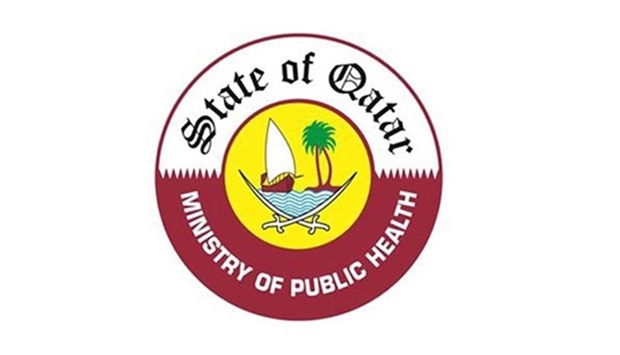A total of 1,466 new cancer cases were diagnosed in 2015, among which 1,417 were malignant and 49 in early stage, according to the Ministry of Public Health (MoPH).
There were also 79 cancer-related deaths among Qataris in the same year. The data was published by MoPH with inputs from Qatar National Cancer Registry (QNCR).
There were also 79 cancer-related deaths among Qataris in the same year. The data was published by MoPH with inputs from Qatar National Cancer Registry (QNCR).
The most common form of cancer was breast, constituting 17.5% of all malignant cancer cases, followed by colorectal with 10.23% across all nationalities and genders. Prostate cancer was the third most common with 6.77%.
Among females of all nationalities, breast cancer was the most common malignancy and accounted for 39.41% of all female cancer cases, followed by thyroid. In males, prostate cancer was the most common with 11.96%, followed by colorectal cancer.
Female breast cancer survival rate during 2013-2015 was 82.3%, which is relatively high and reflects the high-quality diagnostic and treatment services provided to cancer patients in Qatar.
The incidence of the disease among female Qataris of all ages was found to be 55.3 per 100,000. This rate is within international values compared to more economically developed countries where the Age Standardised Rate reaches 80 per 100,000 cases.
Among the cases reported with staging values, 66% were diagnosed at early stage of the disease-stages I and II, following the staging system of the American Joint Commission on Cancer.
Colorectal cancer still needs to be worked on preventive and curative programmes, especially early detection and screening of the disease, as 68% were diagnosed at late stage.
In January 2016, Qatar established the colorectal cancer-screening programme to increase early detection.
Among paediatric population of all nationalities, up to the age of 14, a total of 54 new cancer cases were diagnosed in 2015. Blood cancer was the most common and accounted for 46.3% of all paediatric cancers, followed by brain cancer.
There were 79 cancer-related deaths among Qataris in 2015, accounting for 30% of all deaths. Breast cancer was the most common cause, with 19% of the deaths among Qataris, followed by lung cancer (16.46%) and colorectal (12.66%).
Cancer-related death among paediatric population of all nationalities accounted for 2% in 2015 and 50% of these cases were related to brain tumours.
Dr Salih bin Ali al-Marri, of MoPH, stated that the National Health Strategy 2017-2022 is laying the foundation for a new phase of better health, better value and better care.
"We need to intensify efforts to understand the burden of the disease as well as to continue measuring the efficiency and efficacy of public health programmes and initiatives such as the National Cancer Screening Programme. In addition, measuring the efficiency of treatment and services provided also should be measured,” he said.
Dr al-Hareth M al-Khater, deputy medical director of the National Center for Cancer Care & Research at Hamad Medical Corporation (HMC) pointed out that the HMC, being the main provider of the cancer data, is always supportive of the important and instrumental work of the QNCR.
The QNCR provides comprehensive data on cancer cases diagnosed annually and covers all public and private healthcare facilities in Qatar.
Among females of all nationalities, breast cancer was the most common malignancy and accounted for 39.41% of all female cancer cases, followed by thyroid. In males, prostate cancer was the most common with 11.96%, followed by colorectal cancer.
Female breast cancer survival rate during 2013-2015 was 82.3%, which is relatively high and reflects the high-quality diagnostic and treatment services provided to cancer patients in Qatar.
The incidence of the disease among female Qataris of all ages was found to be 55.3 per 100,000. This rate is within international values compared to more economically developed countries where the Age Standardised Rate reaches 80 per 100,000 cases.
Among the cases reported with staging values, 66% were diagnosed at early stage of the disease-stages I and II, following the staging system of the American Joint Commission on Cancer.
Colorectal cancer still needs to be worked on preventive and curative programmes, especially early detection and screening of the disease, as 68% were diagnosed at late stage.
In January 2016, Qatar established the colorectal cancer-screening programme to increase early detection.
Among paediatric population of all nationalities, up to the age of 14, a total of 54 new cancer cases were diagnosed in 2015. Blood cancer was the most common and accounted for 46.3% of all paediatric cancers, followed by brain cancer.
There were 79 cancer-related deaths among Qataris in 2015, accounting for 30% of all deaths. Breast cancer was the most common cause, with 19% of the deaths among Qataris, followed by lung cancer (16.46%) and colorectal (12.66%).
Cancer-related death among paediatric population of all nationalities accounted for 2% in 2015 and 50% of these cases were related to brain tumours.
Dr Salih bin Ali al-Marri, of MoPH, stated that the National Health Strategy 2017-2022 is laying the foundation for a new phase of better health, better value and better care.
"We need to intensify efforts to understand the burden of the disease as well as to continue measuring the efficiency and efficacy of public health programmes and initiatives such as the National Cancer Screening Programme. In addition, measuring the efficiency of treatment and services provided also should be measured,” he said.
Dr al-Hareth M al-Khater, deputy medical director of the National Center for Cancer Care & Research at Hamad Medical Corporation (HMC) pointed out that the HMC, being the main provider of the cancer data, is always supportive of the important and instrumental work of the QNCR.
The QNCR provides comprehensive data on cancer cases diagnosed annually and covers all public and private healthcare facilities in Qatar.

